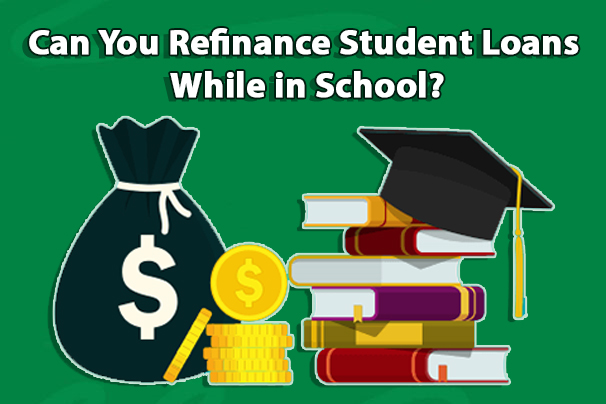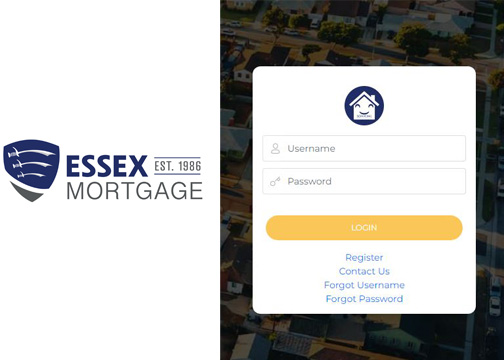Yes, you can refinance student loans while in school, possibly before you graduate, but not all lenders offer such deals. Additionally, most lenders could place restrictions on when you can refinance and when to make payments before the due date. Generally, while you refinance your student loans in school, it presents opportunities such as reduced interest rates and increased flexibility in repayment.

While many individuals choose to refinance student loans post-graduation, it’s entirely possible to explore this option even while still in school. Lastly, here are major insights regarding refinance student loans while in school and assessing whether it aligns with your financial strategy.
What Is Student Loan Refinancing?
Student loan refinancing is regarded as a well-known approach to handling student loans. This process involves collaborating with a private bank, credit union, or online entity to secure a new loan covering your entire existing educational debt. The terms of this new loan can potentially assist your cost savings, reduce monthly payments, or cover debt repayment.
Which Student Loans Can You Refinance in School?
Students can refinance both federal and private student loans in school regardless of whether they have consolidated or refinanced them in the past. Moreover, there are no restrictions on the number of times you can do so. Although most lenders are willing to refinance federal PLUS loans, a few of them permit you to transfer a parent PLUS loan to the child’s name. However, it’s important to review whether your chosen lender supports this option before proceeding with the application.
Additionally, private loans cannot be transferred to the federal government; hence, refinancing with a private lender is the only option. This implies that by refinancing federal student loans, you forfeit access to programs such as income-driven repayment and loan forgiveness. Therefore, it’s advisable to evaluate whether these benefits are necessary before proceeding with refinancing. Refinancing private student loans becomes an obvious choice if you are eligible for a minimal interest rate since you won’t forfeit government loan advantages.
Advantages of Refinancing Student Loans While in School
Before you apply for the student loan refinancing process while in school, there are several beneficial factors to consider:
Reduce Your Interest Rate
If your existing loan has an elevated interest rate and you qualify for a lower rate either independently or with a cosigner. Additionally, you can reduce the increase of interest during your in-school deferment period. Moreover, shopping and comparing rates offered by leading refinancing lenders enables you to know potential costs with a new loan and assess its competitiveness against your current loan.
Repayment Terms
Most private lenders permit borrowers to make full monthly payments while in school. If you choose this repayment alternative but can’t pay back, refinancing can extend the repayment term, resulting in reduced monthly payments.
Switch Rate Types
Refinancing a student loan while in school might involve switching the type of interest rate on your loans. For example, if you currently have a different rate and are concerned about potential rate hikes post-graduation, choosing to refinance could allow you to secure a new loan with a fixed interest rate.
New Lender
Refinancing presents an opportunity to select a new loan lender if you have a bad encounter with your current lender. Moreover, when evaluating potential refinance lenders, it’s advisable to consider factors like interest rates, loan terms, customer satisfaction ratings, and any additional borrower benefits offered by the lender.
Disadvantages of Refinancing Student Loans While in School
Despite refinancing student loans being beneficial to students, it can also have some disadvantages for students as well. Here are some drawbacks you should consider:
No Guarantees
Refinancing through a private lender necessitates a strong credit history and stable income, which can be challenging to fulfill if you are a college student. Once you get approval, securing a sufficiently low interest rate to justify the refinancing may prove difficult. In instances where you are unemployed or possess restricted credit history, getting a cosigner may be necessary to meet eligibility requirements.
Loss of Certain Advantages
Whether you possess federal student loans, a private lender through refinancing will cause access loss to various benefits. This includes loan forgiveness programs and income-driven repayment plans. Although private lenders usually provide forbearance alternatives for borrowers encountering financial difficulties, they can’t offer relief options from the federal government.
Immediate Payment
Unless you secure a lender offering payment deferment, you will be required to begin payments within a month or two, as it may cause financial strain. Additionally, it’s important to ensure your budget can accommodate the new monthly payments and review whether the lender offers flexible repayment.
Is Refinancing the Right Choice?
If you are considering refinancing a student loan while in school, it’s important to assess the potential short-term and long-term ramifications of such a decision. Moreover, it’s essential to comprehend the eligibility criteria and the requisites for securing favorable terms. Typically, lenders mandate a minimum credit score in the mid-600s and an income of $24,000 or more for approval. Understanding these requirements is essential for making an informed decision regarding refinancing.
Generally, some lenders allow students to refinance loans while in school as various factors are considered to determine if you will be granted an approval or not. These factors include incomes, credit scores, and school programs.





